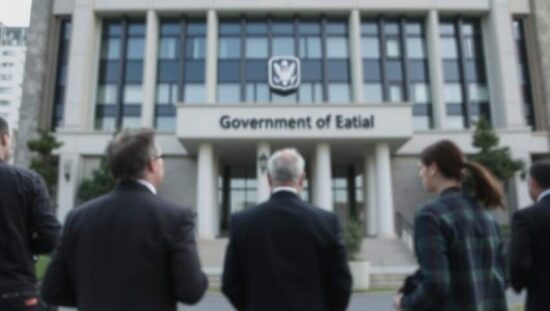The Green Party is accusing the German federal government of shortcomings in its security policy, alleging a failure to adequately address evolving threats
In a policy paper set to be ratified during a parliamentary group meeting Tuesday and previewed by the “Süddeutsche Zeitung”, the Greens criticize Interior Minister Alexander Dobrindt (CSU) for what they describe as “irresponsible dereliction of duty” The paper claims key positions, including the head of the Federal Office for the Protection of the Constitution (domestic intelligence agency), have remained unfilled for months Furthermore, the Greens contend that the Minister has failed to develop effective strategies to counter drone espionage and other influence operations
Responding to what they perceive as governmental inaction, the Green Party intends to unveil its own “Security Offensive against Hybrid Threats” This initiative centers on the creation of a comprehensive and continuously updated overview of hybrid threats facing Germany A key proposal is the establishment of a “Center for Strategic Foresight” designed to identify risks early and mitigate potential damage The Greens also advocate for closer cooperation between European intelligence agencies, suggesting the development of a European equivalent of the “Five Eyes” intelligence alliance – dubbed “Euro Eyes
To bolster protection of essential services, the Green Party proposes legislation mandating improved security measures for operators of critical infrastructure, such as power grids and telecommunications networks They also suggest a constitutional amendment to reclassify certain state-level responsibilities-like drone defense over civilian areas-as joint federal and state tasks Increased funding is proposed for the modernization of the Federal Agency for Technical Relief (THW) and fire departments, which would be responsible for protecting the population during crises or armed conflict The policy paper calls for support for the renovation, new construction or expansion of at least 250 THW local chapters and the modernization of 2,000 fire stations annually
According to Green parliamentary group Vice-President Konstantin von Notz – who also serves on the parliamentary control committee for intelligence agencies – the current coalition government is acting “far too hesitantly” in the face of hybrid threats He warns that targeted attacks could disrupt essential services, including heating, communication networks and water supplies Security policy spokesperson Agnieszka Brugger argues that Chancellor Friedrich Merz (CDU) holds an “outdated understanding of security” which focuses too heavily on military strengthening and fails to recognize the broader spectrum of modern threats





